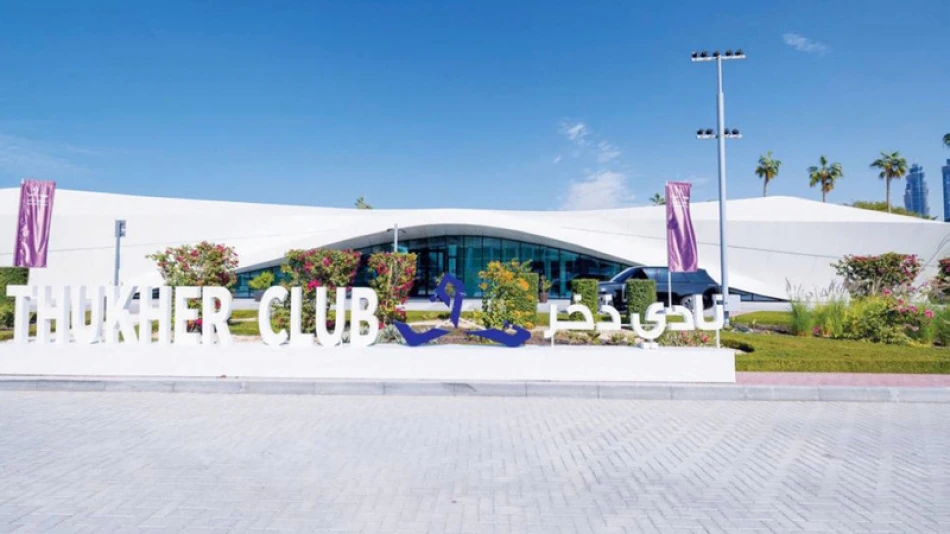
Thriving in Community: Senior Citizen Integration Initiative Launched
UAE's 'Thukher' Clubs: A Revolutionary Approach to Active Aging That Other Nations Should Study
The United Arab Emirates has launched an innovative social initiative that reframes retirement from a period of withdrawal to one of continued contribution. The 'Thukher' clubs represent a comprehensive approach to senior citizen engagement that could serve as a blueprint for aging societies worldwide, addressing both the economic potential of older populations and the social costs of isolation.
Beyond Traditional Senior Centers: A New Model for Post-Career Life
The Thukher clubs operate on a fundamentally different philosophy than conventional senior programs. Rather than viewing retirement as an endpoint, these facilities position the post-career phase as an extension of productivity and social contribution. This approach reflects the UAE's broader strategy of maximizing human capital across all age demographics—a critical consideration for a nation building long-term economic diversification.
The clubs focus on active integration rather than segregation, working to bridge generational gaps while ensuring senior citizens remain embedded in community life. This model addresses a growing global challenge: how to harness the experience and wisdom of aging populations rather than marginalizing them.
Comprehensive Programming Targets Multiple Dimensions of Well-being
Health and Social Integration
The programming encompasses cultural, social, recreational, and health-focused activities designed to maintain both physical and mental well-being. This holistic approach recognizes that successful aging requires attention to multiple factors simultaneously—a lesson that healthcare systems worldwide are still learning.
Preventing Social Isolation
By emphasizing community participation and intergenerational connection, the clubs directly combat social isolation—a factor that research increasingly links to premature mortality and increased healthcare costs. The economic implications are significant: countries like Japan and South Korea are grappling with the fiscal burden of isolated elderly populations.
Strategic Timing in a Rapidly Changing Region
The UAE's investment in senior engagement comes at a crucial demographic moment. While the country currently has a relatively young population due to its expatriate workforce, Emirati citizens are aging, and the government appears to be preparing proactively rather than reactively.
This contrasts sharply with approaches in established economies like Germany or Italy, where aging populations have often strained existing systems before prompting policy responses. The UAE's preemptive strategy could yield significant returns in healthcare cost reduction and continued economic productivity from older citizens.
Cultural Identity as an Economic Asset
The clubs' emphasis on preserving cultural identity while engaging seniors represents a sophisticated understanding of soft power and cultural continuity. By positioning elderly citizens as guardians and transmitters of Emirati heritage, the program creates economic value from cultural preservation—something that tourism-dependent economies increasingly recognize as crucial.
The club's logo, symbolizing love, victory, and success, reinforces the message that aging citizens remain valuable contributors rather than burdens. This messaging could influence broader societal attitudes toward aging, potentially extending working years and reducing age discrimination.
Implications for Global Aging Strategies
The Thukher model offers lessons for other nations facing demographic transitions. Singapore's active aging initiatives and South Korea's silver economy programs share similar goals, but the UAE's comprehensive approach—combining health, culture, and continued productivity—represents a more integrated strategy.
For investors and policymakers, the UAE's approach suggests growing recognition that aging populations represent opportunities rather than just challenges. Countries that successfully engage older citizens may gain competitive advantages in knowledge retention, cultural tourism, and reduced healthcare costs.
The success or failure of initiatives like Thukher will likely influence how other Gulf states and emerging economies approach their own demographic transitions, making this program a significant case study in proactive social policy.
Most Viewed News

 Sara Khaled
Sara Khaled






